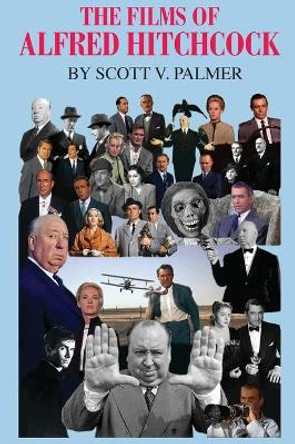Description
A new view of the master's oeuvre, focusing on his ambivalence toward the Emersonian way of thinking he longed to embrace but resisted for the sake of his art.
About the Author
William Rothman is professor of cinema and interactive media at the University of Miami. An expanded edition of his landmark study Hitchcock: The Murderous Gaze was published in 2012. His other books include The "I" of the Camera: Essays in Film Criticism, History, and Aesthetics, Documentary Film Classics, and Reading Cavell's The World Viewed: A Philosophical Perspective on Film.
Reviews
In his seminal book, The Murderous Gaze, Rothman emerged as a central voice in the study of Hitchcock with his probing and fine-grained analysis of the filmmaker's style and deep interpretations of his work. This new project builds on the critical premises of his earlier work but modifies its predominantly ironic view of Hitchcock. Here Rothman argues with critical verve that Hitchcock's films also contain a redemptive vision of the perfectibility of human nature. -- Richard Allen, author of Hitchcock's Romantic Irony and co-editor of The Hitchcock Annual Rothman entered the field of film study as a maverick, as a Harvard philosopher, at a time when most film classes were taught in literature and language departments, though he has been vindicated in the last decade by a proliferation of philosophical approaches to cinema. While Rothman draws his examples from all across the Hitchcock canon, his work remains resolutely and productively philosophical in that he grapples with the history of Hitchcock's thinking about film, his thinking with and through film. In tracking Hitchcock's ruminations on love, murder, and mortality Rothman both deepens and illuminates our understanding of Hitchcock's continued and uncanny appeal. -- Leland Poague, Iowa State University In this glittering homage to Emerson, Cavell, and the Master of Suspense, one of our most learned scholars of film opens new pathways to understanding Hitchcock's work as penetrating, provocative, labyrinthine, and exquisitely mortal. -- Murray Pomerance, Author of The Eyes Have It: Cinema and the Reality Effect Nobody knows the films of Alfred Hitchcock better than William Rothman. The idea of linking these wonderful and dense films with an Emersonian vision is inspired. Rothman's training in philosophy combines lucidly with his lifelong devotion to film in producing a work of originality and authority. -- Stanley Cavell, Harvard University William Rothman, who wrote the remarkable Hitchcock: The Murdeous Gaze, now takes a revisionary Emersonian view and seeks to enlist the devilish master of suspense on the side of the angels. -- Gilberto Perez, Sarah Lawrence College William Rothman is one of the great close readers of film... In his new book, Must We Kill the Thing We Love?: Emersonian Perfectionism and the Films of Alfred Hitchcock, Rothman again performs virtuoso acts of close viewing... An important contribution to Hitchcock scholarship. -- David Banash Screen [Rothman's] interpretations are always insightful (and backed up by close readings of cinematic technique) and his demonstration of the relevance of Emerson to Hitchcock is philosophy of film at its best. -- Daniel Shaw New Review of Film and Television Studies
Book Information
ISBN 9780231166027
Author William Rothman
Format Hardback
Page Count 320
Imprint Columbia University Press
Publisher Columbia University Press















